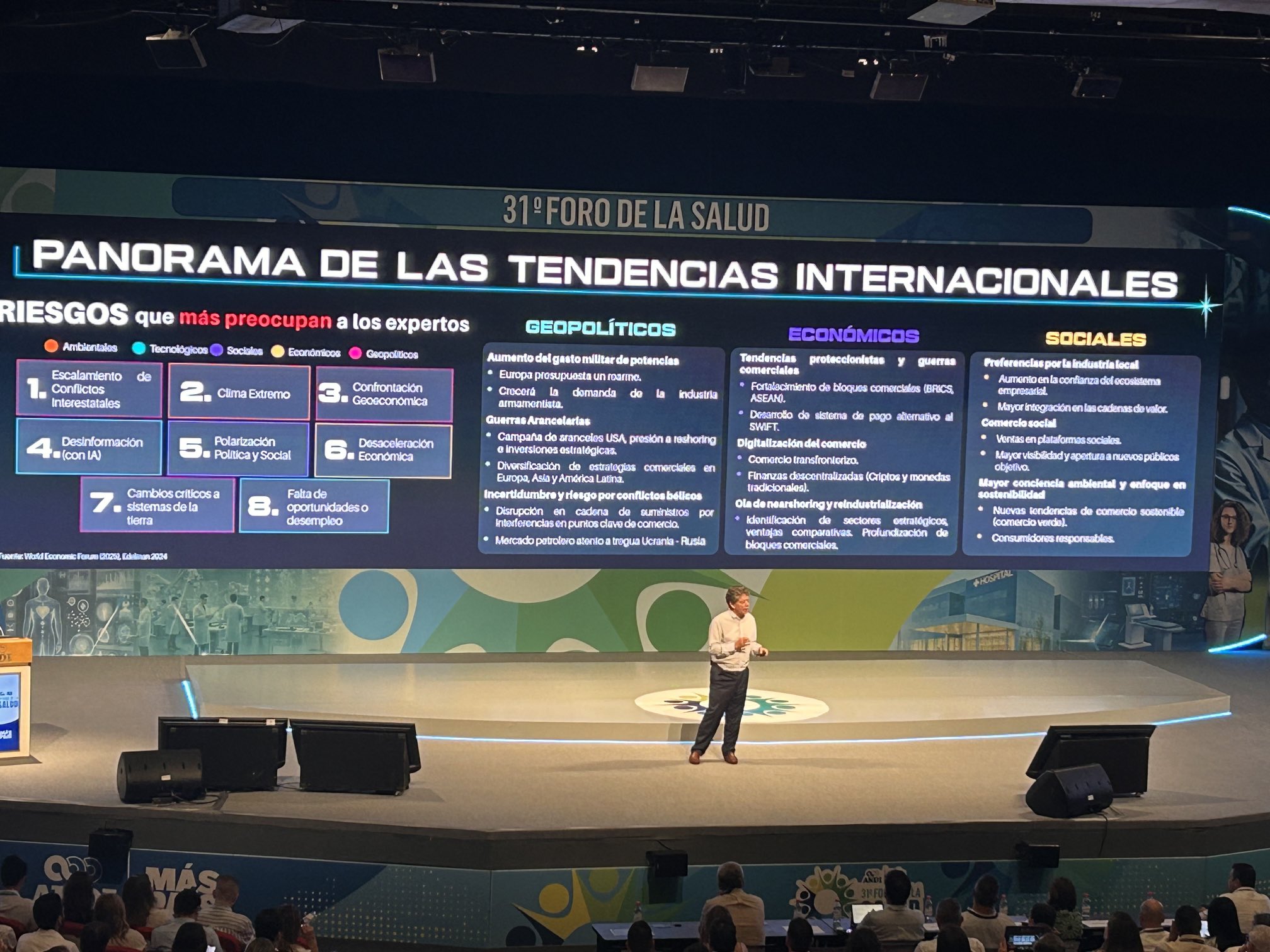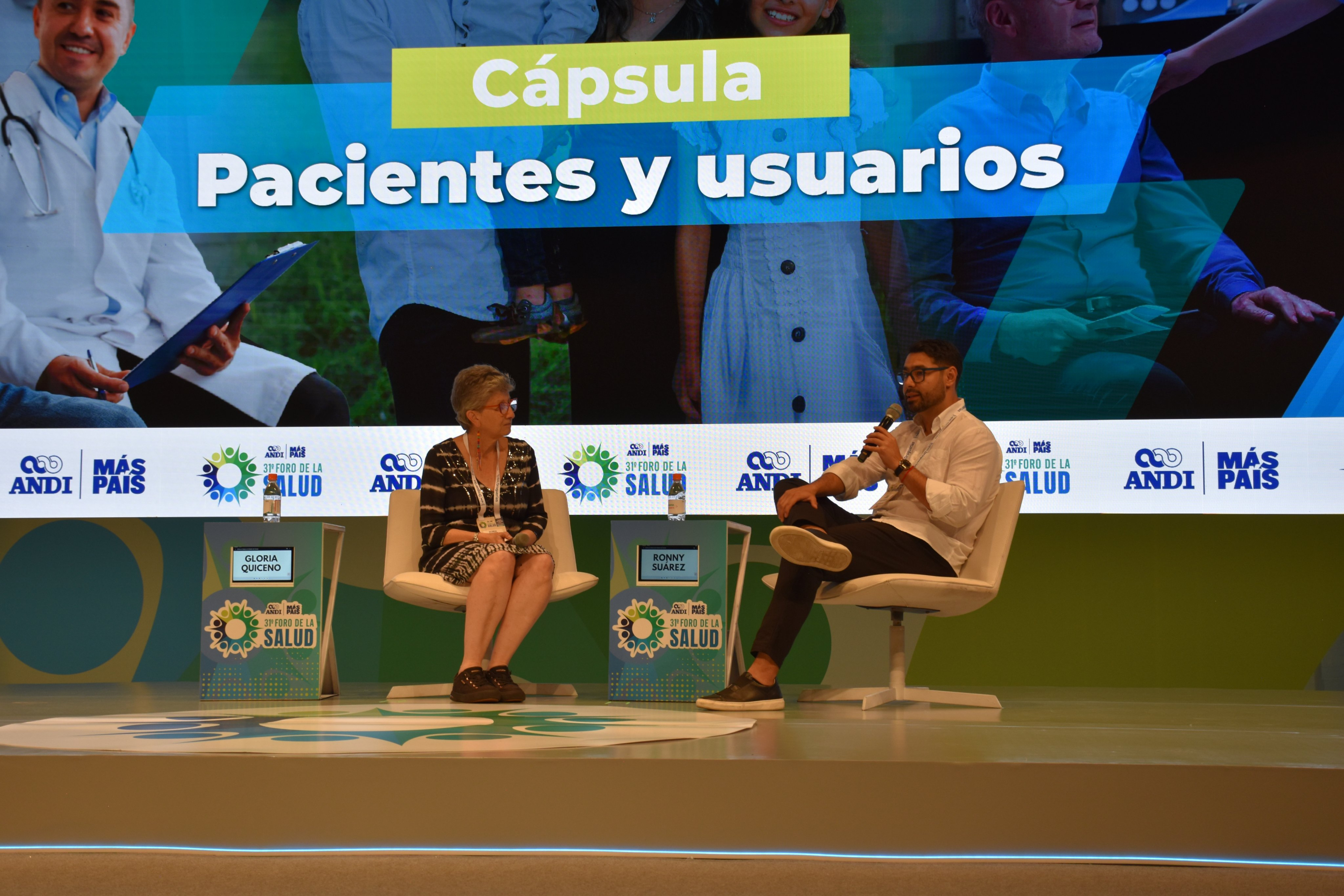'Are we worried? Yes, but we can't just stop there': Bruce MacMaster on the country's healthcare system

At the 31st Andi Health Forum, taking place this week in Cartagena, the president of the association, Bruce Mac Master, issued a call to action in light of the serious indicators demonstrating the crisis currently facing the country's healthcare system and the urgent need to address the underlying problem: financing.
According to the union leader at the opening of the meeting, which will take place from June 18 to 20, the current situation of the Colombian healthcare system can already be described as a "humanitarian crisis," and this is clearly reflected in the indicators presented. In his opening remarks, the leader presented data that show clear signs of underfunding, a deteriorating provider network, and a growing emergency that is putting the lives of millions of Colombians at risk.
For example, one of the most important data points is the increase in the per capita payment unit (UPC) claims rate, which exceeded 105.1 percent in 2024. That is, patients are spending 5.1 percent more of what each Colombian pays for their healthcare, leaving a liability that affects the system's operation.
On the other hand, the State would not be paying, increasing the nation's liabilities to the EPS, which went from $2.2 trillion in 2021 to more than $9 trillion pesos in 2024. Added to this is a widespread deterioration in the payment portfolio throughout the entire healthcare system value chain. Healthcare Provider Institutions (IPS), for their part, went from having a past-due portfolio of $1.7 trillion in 2022 to $3.6 trillion in 2025.

The president of Andi presented the current status of the system to a packed auditorium. Photo: Andi
The situation is similar for pharmaceutical laboratories, medical device companies, and medical gas companies, whose non-performing and written-off loan ratios exceed 70 percent in some cases. This accumulation of debt, according to Mac Master, demonstrates a profound crisis of confidence and financial sustainability that threatens to disrupt basic healthcare services.
At the same time, the figures also show a greater burden on citizens' pockets. Private health spending has steadily increased, with out-of-pocket spending rising from $11.5 trillion in 2021 to a projected $12.8 trillion in 2024.
At the same time, user PQRD (Petitions, Complaints, Claims, and Reports) skyrocketed: from 996,733 in 2021 to more than 1.7 million in 2024. In the first three months of 2025, 488,863 complaints have already been registered, confirming a serious humanitarian crisis in access to and quality of services, where the main reasons are related to delays in appointments, procedures, and medical supplies.

The Andi Health Forum will be held in Cartagena from June 18 to 20. Photo: Andi
In this regard, Mac Master was clear in pointing out that there is concern among the various stakeholders in the system about the situation. Therefore, this year, part of the Andi Health Forum will be dedicated to holding workshops in which system stakeholders will try to find solutions that help alleviate some of the problems.
“This forum will seek to produce solutions, which is why we have turned part of the forum into a workshop. The idea is for us to sit down and produce solutions. Are we worried? Yes. Are we anxious? Yes. But we can't stop there. Our task is to try to move Colombia forward,” the union leader stated.
Mac Master was emphatic in pointing out that the dialogue with the government "has been complex" and that although he directly invited the minister to the forum so that the head of the ministry could participate and try to find solutions, he did not respond to the invitation.
“I could show you the invitation I personally extended to the Minister of Health to come here and speak with all the stakeholders in the system. He didn't even deign to answer. But it's a call for us to stabilize the system. The priority right now can't be political or ideological; the priority has to be humanitarian. We have to stabilize the health system. And stabilizing means giving it sufficient resources to operate,” he emphasized.

Bruce Mac Master opened the 31st Andi Health Forum. Photo: Andi
According to Mac Master, it's clear that government intervention has not improved the system's situation. Although 58 percent of the country's system users are currently affiliated with intervened EPSs, the PQRD figures for these insurers have worsened, demonstrating that the government has made no efforts to improve the system; quite the opposite.
"When we come across the minister's statements that they have the system "in intensive care so that the health reform can be approved," I actually say that this attitude seems, to say the least, completely removed from the humanitarian spirit that public officials and doctors like the Minister of Health should have," Mac Master concluded.
Environment and Health Journalist
eltiempo





